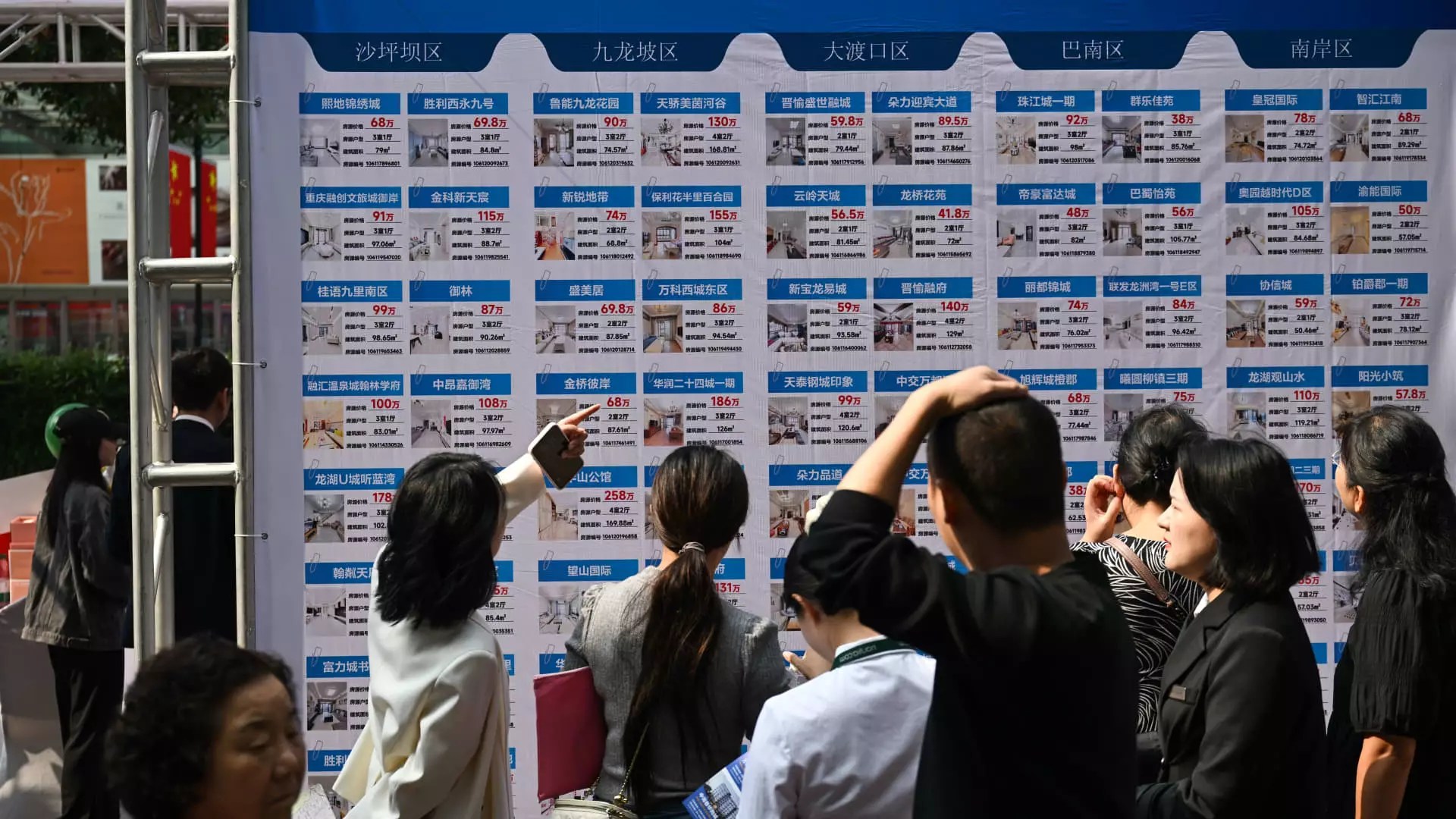China’s real estate sector has faced relentless challenges over recent years. While property development giants scramble for stability amid a significant downturn, an emerging player, KE Holdings, offers a refreshing perspective for investors. Listed in the U.S. under the ticker “BEKE” and operating the popular Lianjia platform, KE Holdings is demonstrating resilience and adaptability. This article explores the company’s position amidst changing market dynamics, scrutinizes expert opinions, and assesses potential investment opportunities for stakeholders.
The Chinese real estate market is undergoing monumental shifts. With previous models heavily reliant on pre-sales of unfinished projects, the current market landscape is beleaguered with older inventory and an aging demographic. The recent announcement from President Xi Jinping highlights governmental intentions to stabilize the market. This move came hand-in-hand with measures from the People’s Bank of China (PBoC) aimed at easing the financial burden on existing mortgage holders. These coordinated efforts suggest a fundamental pivot in approach, steering clear of past strategies that no longer yield results in today’s economic environment.
Furthermore, major cities, including Beijing, are lightening restrictions on home purchases, which reflects an eagerness to stimulate demand. This newfound flexibility may lead to an uptick in transactions, especially during significant holiday periods, showcasing that certain segments of the market are responding positively to proactive measures. However, caution is warranted; while holiday data might imply a recovery, the depth of this rebound remains uncertain. Industry analysts like Richard Tang express skepticism about the sustainability of this uptick, highlighting the prolonged nature of recovery expected in the sector.
Within this broader context, KE Holdings appears strategically positioned to capitalize on the upcoming opportunities. Despite a modest gain of 38% in its U.S.-traded shares in 2024—contrasted sharply against the nearly stagnant performance of Chinese property stocks in Hong Kong—the company’s diverse portfolio offers an advantage. KE Holdings not only engages in brokerage transactions for existing and new homes but has also expanded into home renovations and rentals, thereby augmenting its revenue streams.
Jefferies analysts have recommended KE Holdings as a strong buy, projecting a price target of $30 based on anticipated benefits from governmental reforms. Their outlook underscores a belief in KE Holding’s capacity to harness enduring value in brokerage services, which could prove a critical asset as home purchasing dynamics evolve in China.
The positivity surrounding KE Holdings is countered by cautious evaluations from several financial experts. For instance, Bank of America Securities recently reported a pessimistic forecast, suggesting that home prices might decline by an additional 10% before reaching a plateau. The underlying sentiment remains that the current transaction volume may not reflect a long-term trend, and buying behaviors are unlikely to shift substantially without a significant reassessment of market conditions.
Interestingly, the company’s market share remains robust, particularly among brokerage channels, indicating that while external market forces exert pressure, KE Holdings retains a competitive edge. This aspect was noted by analysts involved in consultations with significant players in the property agency landscape, alongside observations that KE Holdings has maintained a notable presence within the existing and new home transaction sectors.
Additionally, developments surrounding the stock market present potential catalysts for KE Holdings’ growth trajectory. Analysts at Goldman Sachs have indicated that KE’s Hong Kong-listed shares may soon be eligible for broader market accessibility through the connect program, paving the way for new investment. Given that the top-tier cities contribute a significant proportion of KE’s gross transaction volume, this measure could substantially enhance liquidity and share performance.
Moreover, KE Holdings’ currently reported net cash position of $10.5 billion stands as a robust buffer against market volatilities. The company’s commitment to returning value to shareholders through buybacks and dividends is noteworthy, considering the overall uncertain economic landscape. Goldman Sachs’ price target set at $6.95 for its Hong Kong shares and $21 for its U.S. listings encapsulates their belief in the favorable upside potential.
As KE Holdings navigates a complex and changing real estate environment, its ability to adapt and innovate may prove instrumental in carving a path toward sustained growth. While analysts hold divergent perspectives on the feasibility of a swift market recovery, the ongoing policies from government bodies paired with KE Holdings’ strategic initiatives position the company as a significant player in the future of China’s property landscape. Investors would be prudent to monitor these developments closely, weighing the balance of risk and reward as the market begins to display signs of life. Ultimately, KE Holdings embodies both the hopes and challenges of an industry in transformation, reflecting broader economic sentiments amidst potential recovery.


Leave a Reply